GO: Let’s start off with the basics: How did you come up with the idea for your business?
Kristin R. Thomas, Mountain Girl Productions: When I produced my first feature film I had such a hard time getting funding from investors. So, I decided to bring in funding with companies that could provide the props, wardrobe and locations I needed. It became obvious really quickly that there was a need to bring in sponsors to help others with funding. Investors might not want to take a chance on an LGBT film, but companies see that LGBTs are a demographic with spending power. So over the years I saw an opportunity to help the LGBT community by funding films and events that tell our stories.
LI, LI Softball Academy: After my final season competing, softball icon Jennie Finch asked me to steer her softball academy in New Jersey. After all of the dust settled, and I had earned a Master’s degree in business, I called my graphic designer, Astar Lambert, and boom: LI Softball Academy emerged.
Emy Storey and Sarah Fobes, Revel and Riot: We were in a well-known LGBT bookstore a couple years ago that also happened to sell apparel, and we realized that we’d never want to wear any of the LGBT Pride T-shirts. We wanted to do something about it, and it just so happened that we were uniquely suited to take on this kind of project.
Danielle Rapin, Barklyn Organics: Barklyn Organics was born soon after my partner Dyana and I adopted our dog Baci. She was a scrawny little bean who had been red-listed at the pound [meaning she was going to be euthanized] because they thought she was too sickly for adoption. I began cooking for her, slowly incorporating ingredients to see how she would react…Within a month of home-cooked meals, she was a brand new dog. Our friends all witnessed our little miracle, and I began receiving calls from people asking if I could cook for their dog. It was at that point Barklyn was born.
Searah Deysach, Early to Bed: By being a frustrated consumer! I had a bunch of less-than-stellar experiences at local sex shops and just keep thinking, “there has to be a better way to do this!” And here I am eleven years later!
So once you’ve cleared the hurdles of starting your companies, how do you get the word out about your products?
Kat Laukat and Angie Evans, Ecodykes: Facebook changed the whole game. When people could look at [our] “Transformations” album on Facebook, which are before-and-after pictures of organizing and cleaning miracles we created, the phone really started ringing. Testimonials are really powerful.
Rebecca Suriano, Wine Me?: I primarily market myself through word of mouth and social media.
Gia Garcia, Willow & Olivia: I agree—social media works.
Zephyr Paquette, Skelly and the Bean: I built my business by offering founding memberships to micro-investors, so I also rely on and encourage word-of-mouth marketing for the majority of my events.
Jennifer Bellizzi, Bellizzi Productions: Much of my business comes from word-of-mouth, either from friends and family or from past clients.
LI: If one of my players earns Player of the Year in her high school season and she decides to name drop LI Softball Academy in a newspaper interview—that player becomes a walking billboard!
Tamara Anita Fleming, Femworks: We’re also using LinkedIn to leverage ways to market ourselves and make stronger connections.
Mona Elyafi, ILDK Media: I do a lot of work on the Internet to establish and levy a prominent presence online. I also make sure I stay current with the latest cultural and social media trends.
Cheryl E. Smith, Cheryl’s Global Kitchen: I market my business through the usual search engines, like Yelp, Urban Spoon, Grubhub and so on.
Natalie Huerta, The Perfect Sidekick: I spread the word about The Perfect Sidekick mainly through the good old “Women for Women” section on Craigslist…We spend our marketing dollars on our current clients because they’ll stay, and they’ll refer.
Deysach: We are very active on Twitter, Facebook, Pinterest, Instagram and Tumblr —and have been very lucky to amass some loyal followers who help spread the word about us.
Leanne Pittsford, Start Somewhere: We spend a lot of time listening on Twitter, LinkedIn and Facebook. Being known as a resource is a great way to build relationships, provide value and get referrals.
In this economy, you need to stand out from the crowd. What’s the most outrageous thing you’ve done to promote your business?
Garcia: I walked into NYC’s number-one nationally syndicated radio show, “Elvis Duran and The Morning Show,” with a box filled with my cake balls and tweeted to them that cake balls were in the house. In less than five minutes Elvis and the gang were eating—and talking about my cake balls live on air!
Huerta: For our one-year anniversary celebration [we] had a huge banner outside that read, “Fuck the Recession! One year in business.”
Deysach: [I] dressed myself and my friends up in corsets and stockings to play “naughty” Truth or Dare games at a singles event at the Museum of Contemporary Art in Chicago. Turns out people just wanted to look at our breasts, and nothing really came of it.
Pittsford: We made Start Somewhere t-shirts for our dogs, but they refused to wear them. What can you do?
Aside from your pets, who is your target market? Is it important to cultivate an LGBT clientele?
Huerta: Hell yeah. Obesity is the number one cause of death in homo women. Yes! It is very important to cultivate my community.
Laukat and Evans: That is one of the reasons we chose to put the word “dyke” in the name of our business. We know that letting someone into your home can be a very intimate experience and that homes hold a lot of personal, private things.
Elyafi: Cultivating an LGBT clientele is extremely important for me, not just because I am part of the community, but also because I believe we are still an overlooked and under-served community—especially when it comes to crossing over to mainstream media.
Fleming: I want to know who my peers are so we can help each other. That’s why we joined the National Gay and Lesbian Chamber of Commerce’s New York chapter; to connect and network and share our resources with hopes of doing business together.
Bellizzi: I also make it a point that even if my client is not an LGBT client, I make sure that I partner or work with LGBT friendly and supportive companies. There are some companies that I just won’t work with.
Smith: Yes, since it’s my community, and the mission of my restaurant was to create a home away from home for my customers.
Deysach: It’s very important for me as well, since the LGBT community is my community and I want to be the safe, friendly shop that really gets them.
Storey and Fobes: For us, it’s critical. Our products, news and resources are made for LGBTQ people and their allies.
Pittsford: We feel really strongly that our fight for LGBT equality is dependent on a strong LGBT business community, and increasing the wealth of our community. It creates a ripple effect that increases donation power and creates influence at the tables of power.
Rapin: The dogs that I cook for don’t discriminate! They love us unconditionally, regardless of our sexual identity, and I aspire to create a company that is equally accessible to any and everyone who wants the best for their animals.
How much of your clientele is LGBT?
Garcia: I would say about 55 percent of my clientele are LGBT.
Laukat and Evans: Turns out our clientele is pretty much split down the middle, 50 percent queer and 50 percent straight.
Huerta: About 85 percent.
Deysach: When we opened it was the majority of our clients for sure, but unless someone discloses that they are, we don’t really know.
Bellizzi: Since I began my company in 2003, I would say that almost half of my client base is somehow affiliated with the LGBT community.
Fleming: Our business clientele is about 60 percent gay at the moment and the number increases each year, the more businesses know about our niche marketing services.
Elyafi: A good percentage of my clientele remains LGBT based, and I am very happy about that. I’m blessed to work with some true gems in our community.
Rapin: Currently around 20 percent of our clients are LGBT. I hope that number will continue to increase once our doors open this fall.
How does your business give back to the LGBT community? Do you raise awareness for LGBT causes or donate to LGBT-focused foundation?
Storey and Fobes: One of the reasons we started Revel and Riot was to raise awareness and subsequently money for underfunded LGBT organizations. We also run a street team, many hundred strong, worldwide. We send out educational materials and items like stickers, buttons and cards for our supporters to use to promote LGBTQ equality in their own communities.
Smith: I donate to different fundraisers when asked, and while I am not involved with any particular LGBT organization I lend support in any way I can—especially through my visibility as an openly gay mom and business owner.
Laukat and Evans: EcoDykes does make in-kind donations to local causes and events that we believe in. But, more importantly, we believe that being an out and proud queer butch-femme couple in our professional lives is a powerful act of consciousness-raising.
Paquette: I participate in the “Out for Sustainability” dinner series, and they recognize me as both an out and sustainable chef. That touches multiple communities for me—both farmers and “green gays.”
Deysach: In addition to the countless raffle prizes, auction items, program ads and whatnot that we have donated to LGBT organizations, we give free workshops to organizations that ask.
Fleming: I usually teach photography to a group of LGBT young adults and I work with various local non-profits to create images they can use for marketing collateral.
Pittsford: I’m on the board of StartOut, which focuses on building a strong LGBT business community through entrepreneurship, and increasing the visibility of LGBT business leaders.
How about joining forces with your peers for mutual success? Do you network with other women or lesbian entrepreneurs to pool ideas?
Elyafi: There’s nothing like sharing and bouncing back ideas with smart and savvy business women to grow on an individual level. They also help you put things into perspective, business-wise, when perhaps you’re stuck in one critical situation and can’t see the bigger picture.
Huerta: Yup, I believe in abundance, therefore there is no reason not to cooperate and support one another. I’ve made connections with LGBT party promoters that have helped me promote and market my business in a more inexpensive way.
Deysach: I am thrilled to part of a new group called the Progressive Pleasure Club that is made up of 11 woman and trans-owned sex shops in North America! We help each other out, share ideas, support each other emotionally and do some co-op advertising.
Storey and Fobes: Often these kinds of conversations and collaborations really help to refine our work and message.
Laukat and Evans: Absolutely. By being connected to each other, we create a beautiful fabric of mutual aid, resource sharing, inspiration and support.
Ll: I always show up to networking events hosted by organizations like the WNBA’s New York Liberty, WISE NYC [Women in Sports and Events], or anything else related to women in professional sports. I seek them out and go.
Fleming: It’s especially helpful to pair up with other women powerhouses who share our work ethic and vision. Partnering is important, too, for going after state and government contracts to grow our business.
Paquette: There’s definitely a conglomerate of lesbian chefs, like any city that has a great food scene.
Rapin: I discovered that in the world’s top 2,000 companies, only 1.5 percent of their CEOs are female. Let’s start to change that.
We’ve touched on networking and marketing, but now let’s talk traditional advertising. Does it work for you? Where do you put your ad budgets?
Smith: When I started out six years ago I looked to the traditional route of advertising, but so much has changed—people look for info based on popularity and what’s new. My advertising budget has also changed and become smaller, so for any small business, word of mouth is huge.
Storey and Fobes: We do most of our promotion online, which suits us because we are an internet-based business. We sometimes do ad campaigns on Facebook, but most of our promotion is from organic traffic and word-of-mouth online.
Thomas: Using social media allows me to reach out and advertise with clients without limiting my advertising audience with the traditional advertising framework.
Laukat and Evans: Though we’re sure there is a value and audience for traditional ad methods, we haven’t found it necessary. We identified early on that the folks who are interested in our service generally use Facebook and Yelp, so we’ve focused our energies online.
Bellizzi: I also seek out clients by reading about new projects that are being developed and seeing where my company might be able to add value to the event or project going on with a perspective client.
Barklyn Organics: For Barklyn Organics we have created relationships with a number of dog groomers, dog walking companies, daycares, and spas. The clients we currently have are all referral based although we hope that will soon change with our upcoming launch.
Elyafi: Call me old fashioned, but I am a fervent advocate of word-of-mouth marketing.
What has been the biggest challenge in owning your business, and how did you overcome it?
Storey and Fobes: The biggest challenge so far has been building the company while continuing to work our main full-time jobs so we can fund its development. It’s also been an unavoidable challenge to embrace gradual growth and plan for the future of the company.
Smith: The economy taking a nose dive, for one, and being hit with ever-rising prices in the products we use. I have set a standard for the food that we produce out of Cheryl’s and created a flavor profile that our customers have grown to expect, so that won’t change. But with that being said, I am learning to operate my business closer to the bone.
Rapin: Start-up costs. Hands down, this has been and continues to be our biggest challenge. It often feels as though more money is going out than coming in, but we are stretching every last dollar in order to make this dream happen, and we are proud to be following our dream.
Bellizzi: After having my first client’s event—and after being too focused on making it great for three months—I neglected to find my second client and realized quickly that when the next client isn’t booked, the money slows down very fast.
Ll: The biggest challenge for me is to understand the seasons of rushes and lulls in work. In finishing year two, I’ve learned to anticipate [those lulls] and to value a diversified clientele.
Suriano: Wine Me? has grown so fast that I have had difficulty keeping up, and figuring out how to handle demand, and creating a path to mass production. It’s an overwhelming challenge sometimes, but a good problem to have!
Paquette: Making time for everything I have to do, and want to do, to keep the business running and growing is a day-to-day challenge. But if I waited for the right moment, nothing would ever happen, so I just go for it.
Has the sluggish economy made a difference to your revenues? How much of an impact?
Suriano: That’s hard to say, given that Wine Me? was born in the midst of the economic downturn to begin with.
Garcia: I find that folks just don’t have the extra dough to spend on treats like they used to. Every penny matters these days.
Deysach: I have no idea who thinks that the sex industry is recession-proof, because it certainly is not! It wasn’t necessarily fewer customers, but people spending less at a time. We went from having a very healthy cash flow to having to be much more cautious. There were even a few moments of panic that our ends would not be met.
Elyafi: The recession has definitely had an impact on the business. We had to adjust PR fees to accommodate clients’ (lower) budgets; there are also unexpected factors that randomly arise and over which you have absolutely no control. For example, clients suddenly find themselves in a financial position where they are not able to pay on time or at all. In the meantime, you’ve done the work but you’re not bring remunerated for it.
Rapin: In setting a new standard for pet health, I am happy to say I have only seen an increase in the number of inquiries and clients.
Paquette: One of the reasons for the incubator series [a program for emerging chefs to cook in the restaurant on certain nights] is to introduce up-and-comers, but if I can be open seven days a week to feed the community, that’s also a great way to take in extra revenue. Instead of having a dark restaurant on the days we’re not regularly open, that “down time” gets used in a different way.
Thomas: I would say that the economy has had an impact, but not always for the worse. I realized that to stay on top of my competitors, I have to be creative with my projects and pitches to potential sponsors. I have talked realistically with product companies about their budgets so everyone benefits from the project. So, with this change in my approach, I have been able to maintain the success of my business in the entertainment industry.
Laukat and Evans: Our answer to this has been to couple “luxury” services, such as design, organizing and energy work, with work that is often undervalued and underpaid: traditional housecleaning.
Ll: One thing I’ve noticed is that parents may have to cut back on luxuries and vacations at times, but they continue to invest in their daughters. If I can be a small incentive to a young girl developing self-confidence through sports, then I’ve had a good day at work.
Economy aside, how has your business changed in the past few years? Are there issues you no longer encounter, or new tasks to take on?
Deysach: In the past five years we have seen the percentage of our sales that are Internet-based increase a lot. That has forced us to try and figure out ways to still be able to deliver the education and personalized service that we pride ourselves on, even when we never see our customer in person.
Rapin: With the increase in clientele the one challenge we are experiencing is space, and we will be working on renting an industrial kitchen that can help meet the needs of the demand.
Storey and Fobes: As for new challenges, they pop up daily, like balancing opportunity and obligation.
Thomas: I would say my biggest problem now is saying no to a project or client. I am always working, it’s a part of who I am, but at the same time—and this is really important—I need to realize at times that I need to say no to projects so I can have a life outside of work.
Ll: The biggest challenge is managing my own freedom. I’m learning that in no matter what I do with my time, it’s important to go back to the mission statement and stay true to the brand.
Bellizzi: New challenges always come up, mostly because I’m always looking to find new and interesting things to do with my company and with my personal life, and they often overlap. They produce different stress levels, but owning your own company has so many more positives, for me, that I welcome all challenges.


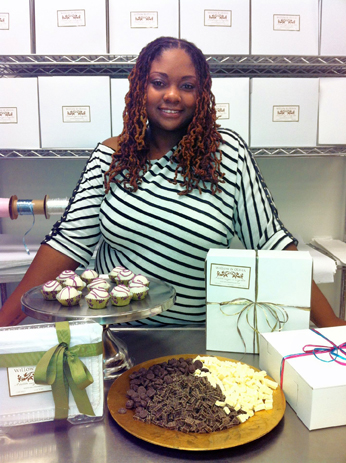


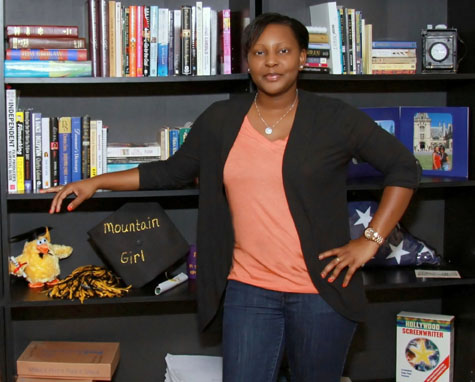

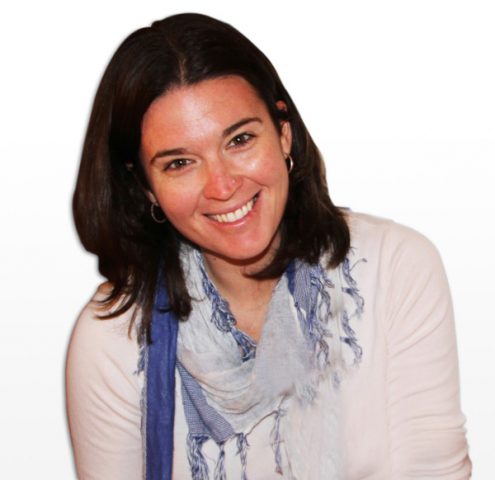


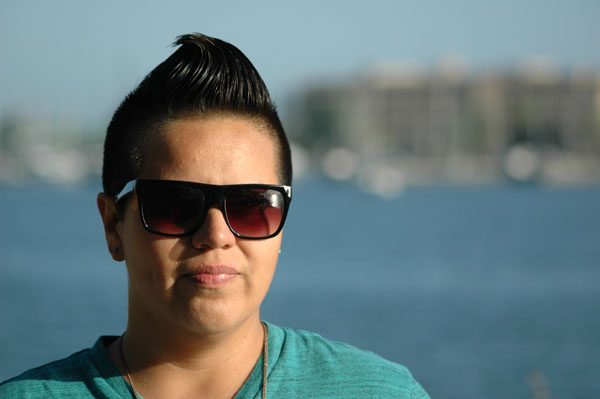
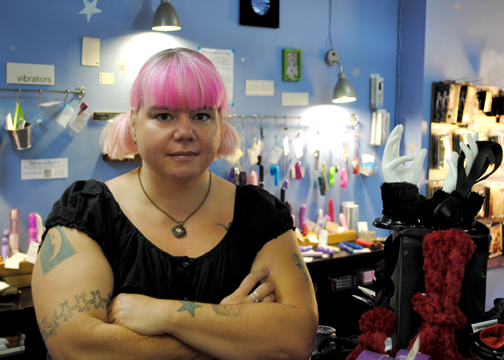



What Do You Think?